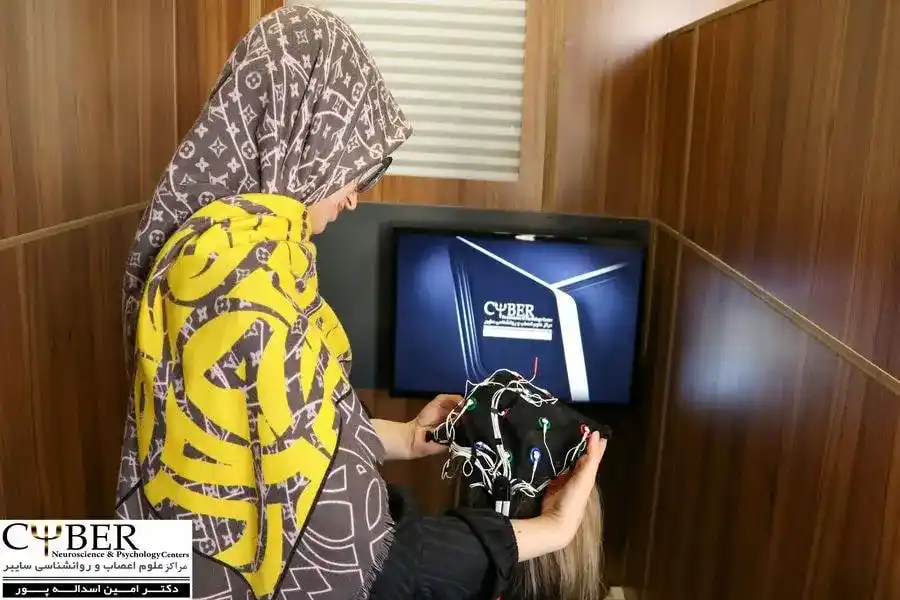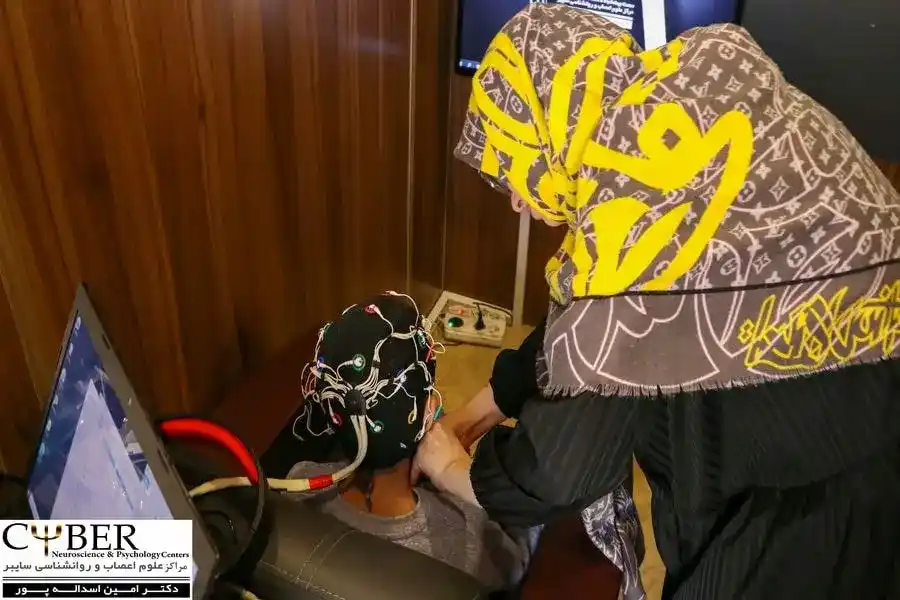What is autism
Autism is a neurodevelopmental disorder that affects a person’s communication, social interaction, and behavior. According to the Centers for Disease Control and Prevention (CDC), approximately 1 in 54 children in the United States have been diagnosed with autism.
Autism is a complex disorder with a wide range of symptoms and severity levels. Some people with this disorder have difficulty with social interactions, while others may have difficulty with communication or repetitive behaviors. Some individuals with autism have exceptional skills in areas such as music or math.
If you suspect that your child may have autism, it is important to seek out a professional evaluation. A diagnosis can help you access resources and support that can help your child reach their full potential.
Symptoms of autism
Symptoms of autism typically appear before the age of three and can vary widely. Some common signs of this disorder include:
- Delayed speech or language skills
- Lack of eye contact
- Difficulty with social interactions
- Repetitive behaviors or interests
- Difficulty adapting to changes in routine
early intervention can greatly improve outcomes for individuals with the disorder. Treatment typically involves a combination of Loreta neurofeedback and therapies, such as behavioral, speech, and occupational therapy, as well as medication to manage certain symptoms.
In recent years, there has been a growing awareness and acceptance of this disorder. This has led to more resources and support for individuals with the disorder and their families. Organizations such as the Autism Society and Autism Speaks provide information, advocacy, and support for those affected by this disorder.
Causes of Autism
The exact causes of autism are not fully understood. However, researchers believe that a combination of genetic and environmental factors may contribute to the development of the disorder. Some studies have identified certain genes and genetic mutations that may be linked to this disorder. Additionally, environmental factors such as prenatal exposure to toxins or maternal infection during pregnancy have also been studied as potential risk factors.
Research and Advances
Research is ongoing to better understand the causes of autism and develop more effective treatments. Some promising areas of research include studying the genetic and environmental factors that may contribute to this disorder, developing new medications to manage symptoms, and exploring the use of technology and assistive devices to support individuals with this disorder.
Ongoing research is crucial for better understanding this disorder and developing more effective treatments and interventions. Many organizations and institutions are dedicated to autism research, such as the Autism Science Foundation and the Simons Foundation Autism Research Initiative. Participating in research studies can also be a valuable way for individuals with this disorder and their families to contribute to the development of new knowledge and treatments.
Diagnosis of Autism
Diagnosing autism can be a complex process. The American Academy of Pediatrics recommends that all children be screened for this disorder at 18 and 24 months of age. If a child shows signs of this disorder, they will typically be referred to a specialist for a comprehensive evaluation. This evaluation may include a physical exam, developmental assessment, and various screenings and tests.
Treatment for Autism
There is no one-size-fits-all treatment for autism, as the disorder can vary widely in its symptoms and severity. However, some common treatments include behavioral therapy, speech therapy, occupational therapy, and medication. Early intervention is often key to improving outcomes for children with this disorder.
Acceptance and Awareness
There has been a growing movement towards autism acceptance and awareness in recent years. This movement seeks to promote understanding and acceptance of individuals with this disorder, and to advocate for their rights and inclusion in society. Many organizations and initiatives have emerged to promote this disorder acceptance and awareness, such as the Autism Acceptance Month and the Autism Self-Advocacy Network.
Support and Resources for Families
Families of individuals with autism may face unique challenges and may require additional support and resources. Many organizations offer resources, support groups, and advocacy services for families affected by this disorder. Additionally, some schools and community centers offer specialized programs and services for individuals with this disorder.
Autism and Community Inclusion
Inclusion in community settings, such as schools, workplaces, and recreational activities, is important for individuals with this disorder. It is important for individuals with autism and their families to advocate for inclusion and work with others to create supportive and inclusive environments.
Autism and Education
Children with this disorder may require specialized education services in order to reach their full potential. Many schools offer special education programs and services for children with this disorder, such as individualized education plans (IEPs) and behavioral support services. Additionally, some children may benefit from alternative educational settings, such as specialized schools or home-based education programs.
Education is a crucial component of supporting individuals with autism. It is important for educators and schools to have a strong understanding of this disorder and the unique needs of individuals with the disorder.
Stigma
Stigma and misconceptions about this disorder can be a barrier to accessing appropriate support and resources. It is important for society as a whole to challenge stigma and promote this disorder acceptance and awareness, and for individuals with autism and their families to advocate for themselves and others.
Autism and Employment
Adults with this disorder may face unique challenges in finding and maintaining employment. However, many organizations and employers are recognizing the valuable contributions that individuals with this disorder can bring to the workforce. Some employers have implemented autism hiring initiatives and offer specialized training and support for employees with autism.
Employment can be a challenge for individuals with this disorder, but with appropriate support and accommodations, many individuals with autism are able to succeed in the workplace.
Accommodations
Accommodations can be helpful in supporting individuals with this disorder in various settings, such as the workplace, school, and public spaces. Accommodations may include sensory-friendly environments, communication supports, and modifications to routines or schedules.
Autism and Co-Occurring Conditions
Individuals with autism may also experience co-occurring conditions such as epilepsy, gastrointestinal issues, anxiety, hyperactivity and sleep disorders. It is important for individuals with this disorder and their families to be aware of these potential risks and seek appropriate medical care and treatment.
Individuals with this disorder may also experience co-occurring mental health conditions, such as anxiety and depression.
Autism and Sensory Processing
Many individuals with this disorder experience sensory processing challenges, such as sensitivity to loud noises or certain textures. Sensory integration therapy and other interventions can be helpful in supporting individuals with this disorder in managing these challenges.
Additional information
this disorder is a fairly common disorder, with an estimated 1 in 54 children in the United States being diagnosed with autism spectrum disorder (ASD), according to the CDC. this disorder is also more commonly diagnosed in boys than in girls, with a ratio of around 4 to 1. Here are some additional information and resources related to this disorder:
Autism and Relationships
Individuals with this disorder may face unique challenges in forming and maintaining relationships. However, with appropriate support and understanding, many individuals with autism are able to form meaningful relationships and lead fulfilling lives. Relationship counseling, social skills training, and support groups can all be helpful resources for individuals with this disorder and their families.
Social relationships can be challenging for individuals with this disorder, but with appropriate support and intervention, individuals with this disorder can develop meaningful and fulfilling relationships.
Autism and Technology
Technology can be a powerful tool to support individuals with this disorder in communication, learning, and daily life. Many apps, devices, and software programs have been developed specifically for individuals with autism, such as communication apps, social skills training programs, and assistive devices.
Nutrition
There is some evidence to suggest that certain dietary changes may be helpful for individuals with this disorder, such as reducing gluten and casein intake. However, more research is needed to better understand the link between nutrition and this disorder.
Sports
Participating in sports can have numerous benefits for individuals with this disorder, such as improving social skills, physical fitness, and overall well-being. Many sports organizations and programs have been developed specifically for individuals with this disorder, such as Special Olympics and Autism Speaks’ Athletes program.
Travel
Traveling can present unique challenges for individuals with this disorder and their families, such as sensory overload, changes in routine, and unfamiliar environments. However, with appropriate planning and preparation, travel can also be a rewarding and enriching experience. Many travel companies and organizations have developed resources and support services for individuals with this disorder and their families, such as Autism on the Seas and the Autism Travel Guide.
Advocacy
Advocacy is an important part of improving outcomes for individuals with this disorder and their families. Advocacy can involve raising awareness about this disorder, advocating for policy changes to improve access to services and support, and promoting inclusion and acceptance of individuals with this disorder in all areas of society. Many advocacy organizations and initiatives have emerged to promote the rights and needs of individuals with this disorder, such as the Autism Society and Autism Speaks.
Parenting
Parenting a child with autism can be challenging, but also rewarding. It is important for parents of children with this disorder to seek appropriate support and resources, such as parent support groups, respite care, and therapy. Parenting strategies that emphasize positive reinforcement and clear communication can also be helpful for supporting children with this disorder.
Aging
As individuals with this disorder age, they may face unique challenges related to aging, such as changes in routines and support needs. It is important for individuals with autism and their families to plan for these changes and seek appropriate support and resources as needed.
International Perspectives
this disorder is a global issue, and different countries and cultures may approach the disorder in different ways. It is important for individuals with this disorder and their families to understand the cultural and societal factors that may impact their experiences and access to support.
Gender
Autism affects individuals of all genders, but there may be differences in how this disorder presents in different genders. It is important for clinicians, educators, and families to recognize these differences and provide appropriate support and interventions.
Language
Communication challenges are a common feature of this disorder, but individuals with this disorder may also have unique strengths and abilities related to language. Some individuals with this disorder may excel in areas such as reading, writing, and memorization.
Conclusion
In summary, autism is a complex disorder that can affect communication, social interaction, and behavior. early intervention and specialized treatments can greatly improve outcomes for individuals with the disorder. Additionally, there are many resources and support services available for families affected by this disorder, and employers are increasingly recognizing the valuable contributions that individuals with autism can bring to the workforce.
For more information, follow our page on Twitter at the following address:


